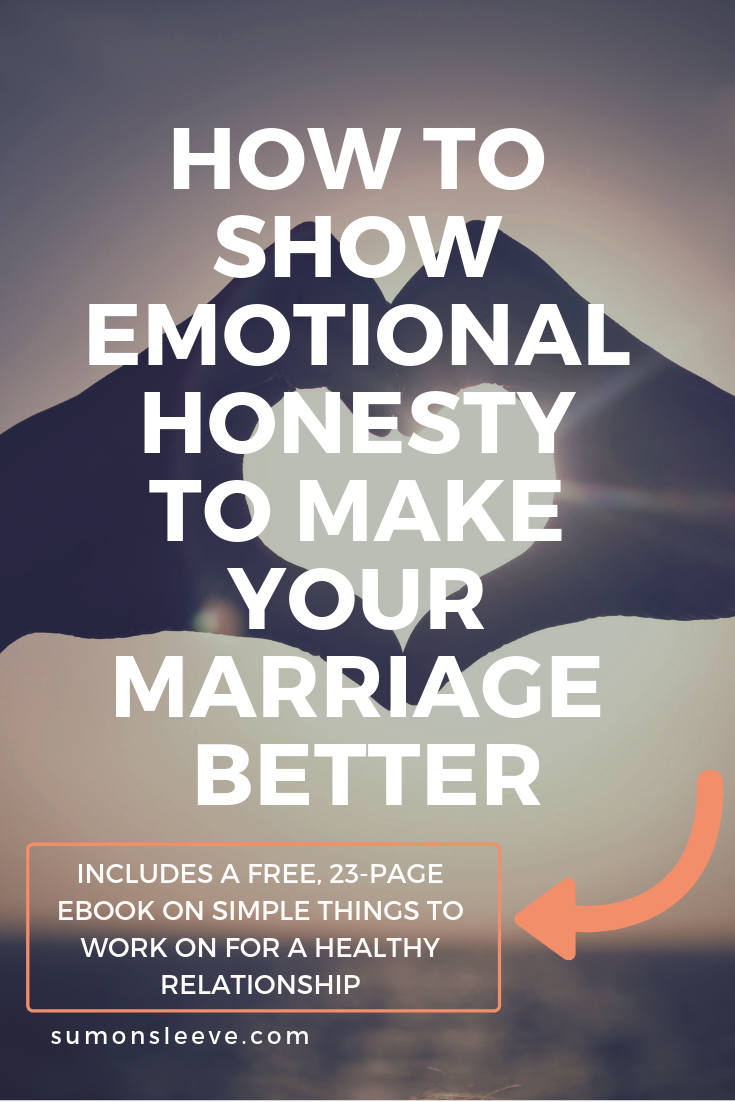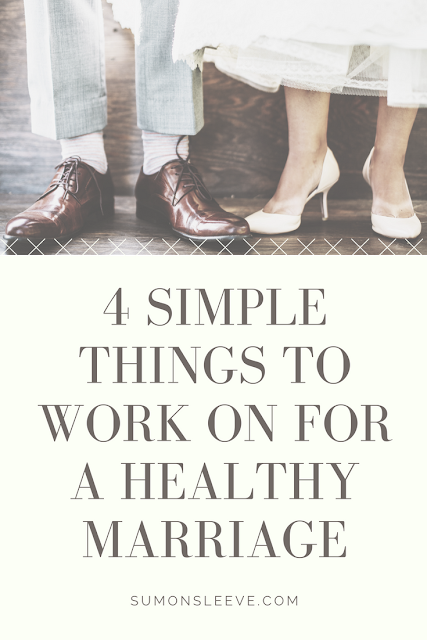
Relationships aren’t easy.
They are a lot of work. They have a start and a finish but they’re dynamic and unpredictable. They change over time.
**Click Below To Listen**
Marriage can appear overwhelming. I mean vows are made between two people that says they are going to commit to each other ‘till death” does them part.
That’s like forever, permanent, isn’t it? It’s no wonder why some folks are scared to do it.
But then there are a ton of people who take the plunge anyway.

I often like to compare marriage to a household plant. It has a health status and it needs moisture, light, and conversation to thrive.
It’s a simple being that needs constant attention. Sometimes, you neglect it. Sometimes, you overwater it. Sometimes, it’s perfectly healthy and sometimes, it dies.
My husband and I try to work on our marriage every day (even when we don’t realize it). We (like many other couples) have our ups and downs (and all around).
But at the end of the day, there are 4 simple things that we continually focus on to make it work.
This is the start of my 4 part Marriage Series.
Click here for Part 2 – Communication
Click here for Part 3 – Respect
Click here for Part 4 – Quality
Honesty and Trust

These two things go hand in hand.
If you are honest with someone, you gain their trust.
If you are dishonest with them, you lose their trust.
It’s a simple concept that we learned as kids when our parents taught us to tell the truth. In return, they trusted us and gave us more independence or the opposite if we were dishonest.
We know as a relationship grows, more information is shared between the couple and that it’s important for both people to be honest about their hopes, dreams, and fears. Being honest with your partner about these things is the first step to building a strong relationship.
The next step is harder.
To me, the hardest part about being honest is when I have to be honest about my feelings, trusting that my partner won’t judge me.
Have you ever said or heard something like this?
I know I have.
“You’re selfish and lazy for leaving dishes in the sink. You can’t even do one little thing. I’ve told you a million times to put them in the dishwasher. You never listen to me. It’s like you don’t even care about me.”
These statements tell our partners what we think of them when they pinch our trigger points.
Yes, we are being honest in the heat of the moment; however, these statements don’t help them understand us.
A blaming tone and name calling actually erode the trust between two people.
I’ve been at a point in a previous relationship where I called him so many names, the trust completely broke…another story, another time.
If I heard such words from my partner, how could I trust them not to judge me the next time I do something I know will upset them?
How can I be completely honest and vulnerable with this person who called me those names?
It’s definitely a work in progress but when I get upset, I try my best to say words that focus on my feelings.
I have to assume that my husband didn’t do whatever he did to intentionally upset me.
I mean I didn’t marry a sociopath.
I try to shift the focus away from how he should feel when he does something wrong and towards why I am feeling the way I am. Instead, I say:
“When you leave dishes in the sink, it makes me feel like a pushover and that I’m not part of a team to maintain the household.
I feel like I’m alone in taking care of us and being alone makes me feel scared. I want to work together so we can lean on each other for support.”
It’s hard for me to find the words to describe my feelings because I’m not naturally good at it.
Growing up, “So how do you feel about that?” was never a question that got asked during family conversations.
I’ve had to learn how to figure out why I am feeling the way I am; then I had to learn how to communicate that honestly with my partner.
Then, there are still times when I’m so upset that I don’t say anything because I’m still processing what happened.
Have you ever had this conversation? (I know I have)
Your partner asks you, “What’s wrong?”
You lie, “Nothing”
Tension builds up over time and one of you ends up blowing up at the other and pointing out each others’ flaws.
You know, because it’s HIS fault that he doesn’t listen and I’m ALWAYS the one criticizing his every move.
To circumvent that from happening, I’ve learned to take my time to process information and then I broach the topic as calmly as I can.
I bring it up as soon as I feel ready to talk openly about my feelings. I make a statement about what he did that upset me, no blaming words, no name calling, just the facts. Then I explain how it made me feel and then why.
The most important part is to feel like you can trust the other person to not judge you for feeling a certain way.
And sometimes, the most important part is to actually bring it up, especially when you’re both exhausted at the end of the day.
Click here for Part 2 – Communication
Click here for Part 3 – Respect
Click here for Part 4 – Quality




